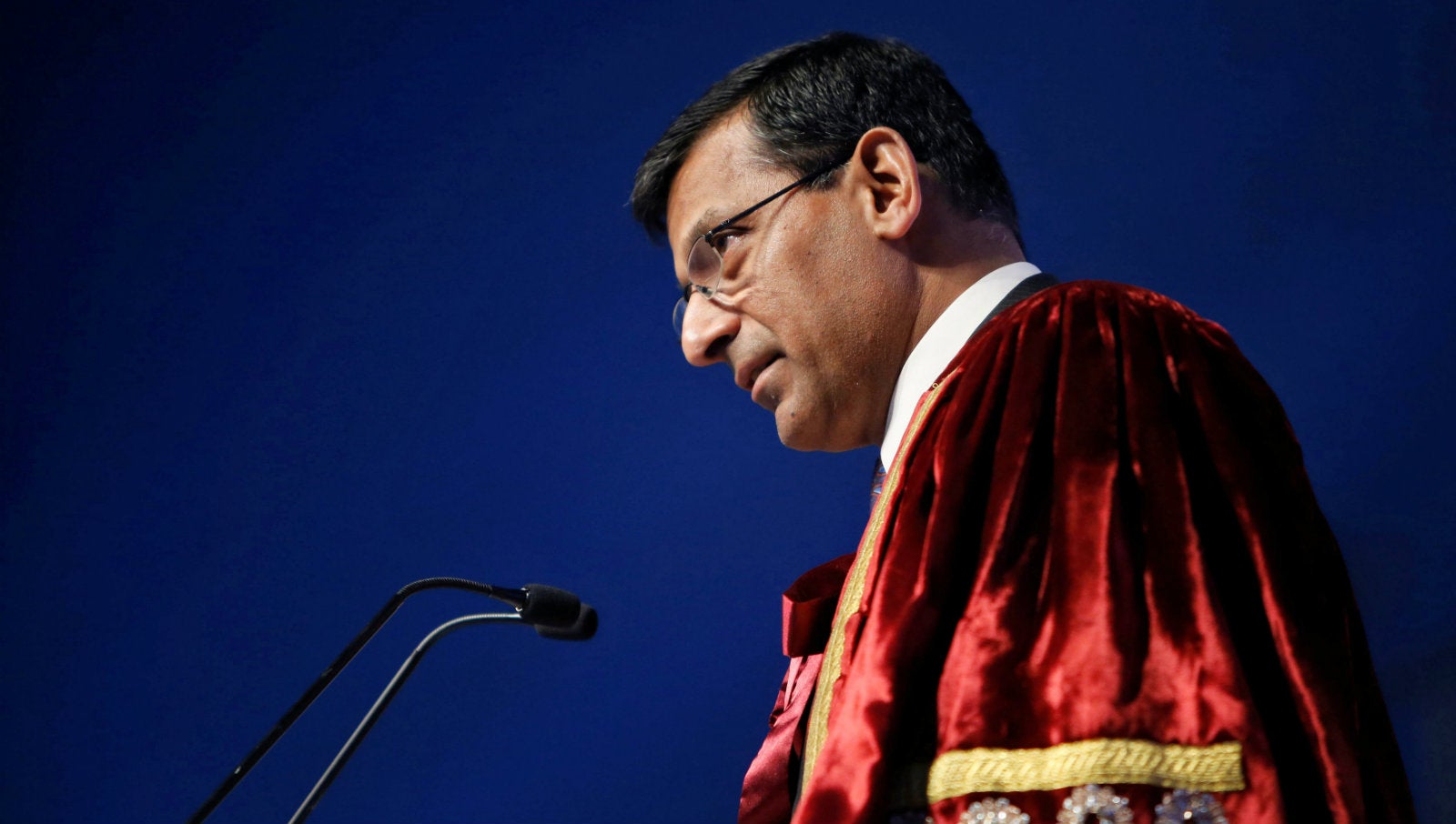The IMF’s youngest-ever chief economist has some advice for fixing India’s education system
India’s central banker Raghuram Rajan has the last word on monetary policy. Now, Rajan—the youngest ever chief economist at the International Monetary Fund—has some advice on fixing India’s creaky education system.


India’s central banker Raghuram Rajan has the last word on monetary policy. Now, Rajan—the youngest ever chief economist at the International Monetary Fund—has some advice on fixing India’s creaky education system.
The Reserve Bank of India (RBI) governor would like to see quality education become more affordable, through a combination of loans and philanthropy.
“Private education across the world is expensive, especially in high-quality research universities, and getting more expensive all the time. That is because the critical resource, good professors, is in short supply,” Rajan said in a graduation speech at the Shiv Nadar University in New Delhi on May 07.
An alumnus and gold medalist of the Indian Institute of Technology-Delhi and the Indian Institute of Management-Ahmedabad, Rajan also has some suggestions on harnessing technology for education projects. The Narendra Modi government, for instance, has proposed using MOOCs (Massively Online Open Courses) for entrepreneurship education and training (pdf). Such platforms, Rajan cautioned, don’t always deliver.
Here are excerpts of Rajan’s speech:
Make it cheaper
To make quality education affordable to all, the RBI governor would like student loans to be made flexible. For those with limited means, the repayment of these loans could even be waived.
Given the need to broaden access to all the deserving, we have to make degrees affordable. One part of the solution is student loans, but we have to be careful that student loans are repaid in full by those who have the means, while they are forgiven in part for those who fall on bad times, or those who take low-paying public service jobs. We also should make sure that unscrupulous schools do not prey on uninformed students, leaving them with high debt and useless degrees. A second part of the solution is philanthropy, not just by the founders, but by the successful students from a university. Giving back to the university is a way of subsidising the costs of future generations acknowledging the subsidies you received from the founders when you got your degree. I hope we develop a strong culture of alumni giving in India.
Technology
The internet could be a powerful tool to spread quality education, according to Rajan. But the implementation of these online courses needs some serious thought.
Why not have the best professors beam lectures at thousands of students over the net? The problem is that while such classes seem theoretically attractive, completion rates are abysmal. We do not finish such courses perhaps for the same reason we do not simply take a course syllabus and read the recommended books in the library—there are too many distractions in life for us to complete without other forms of compulsion. Online courses still need to figure out, not just how to get student commitment, but also how to provide the learning support that a university community and environment offers.
Research
Rajan, who has taught (pdf) at the University of Chicago, Northwestern University, and MIT Sloan, among other institutions, also spoke about research, and its role in teaching.
A second solution is to dispense with research and to have teachers who do not do research. After all, such teachers do not need PhDs, and there should be many more available. Yet it does appear that students prefer degrees from research universities in the United States to those from teaching colleges, even for their undergraduate degrees where students do little research. Let me conjecture why. It is not that research professors know more about the basic material that has to be taught—their research is often specialised in a narrow area. Neither does research necessarily make you a good teacher—understanding the material at a deeper level may sometimes make it more difficult to explain.
I do think, however, that good research requires curiosity. Almost all researchers remain curious through their lives, and constantly update their teaching material to reflect developments in the field. I would conjecture, though I have no proof, this is why teaching at research universities is, on average, preferred to teaching at teaching colleges—you are taught more up-to-date challenging material in the former.